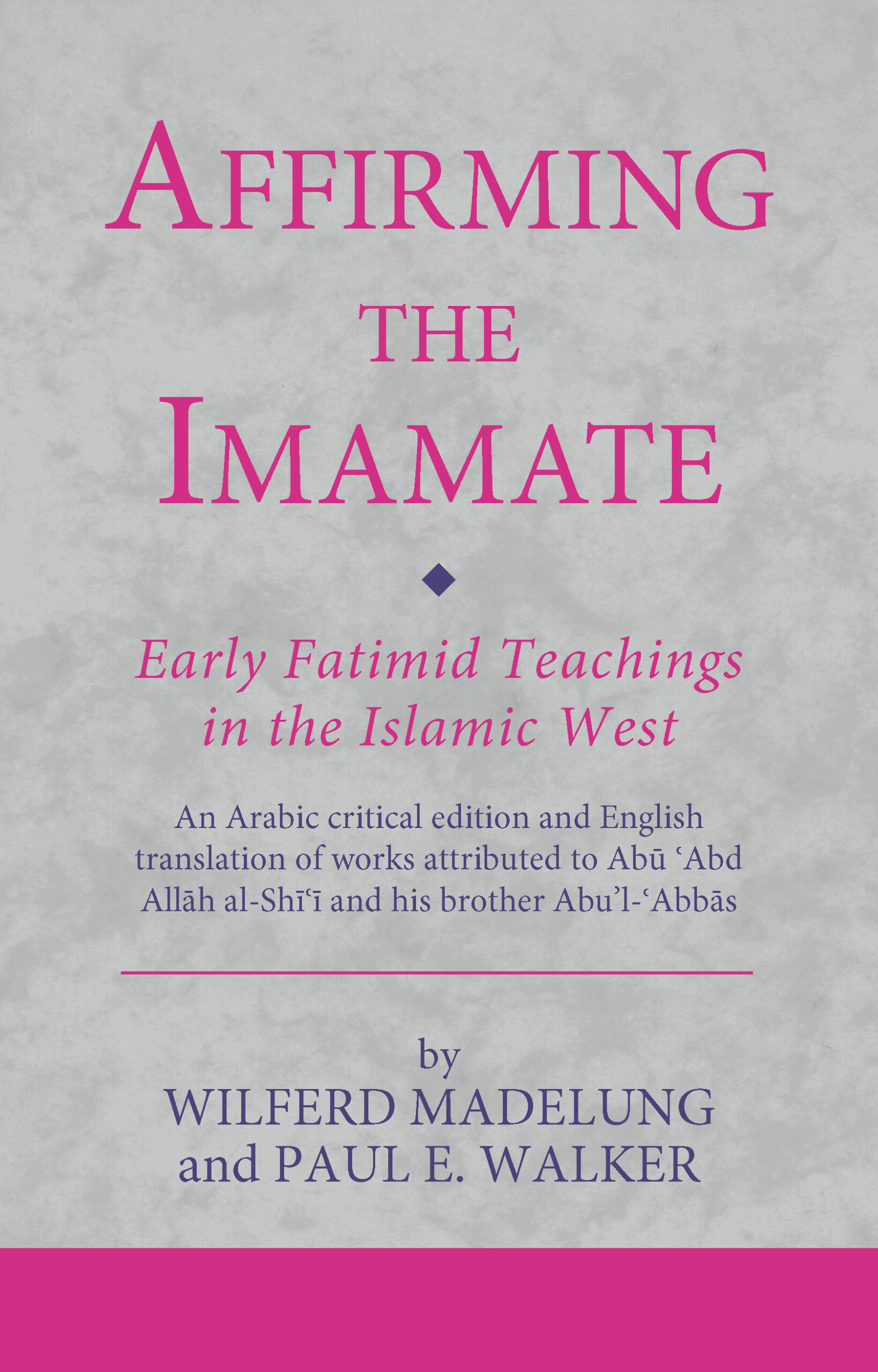The two brief works edited and translated here for the first time are primary material from the years before the establishment of the Fatimid caliphateThe Muslim political institution or state centred around the caliph, which came to an end, historically, in 1924 with the disappearance of the Ottoman Empire. in 297/909. The two brothers who were central to the success of the Ismaili daʿwaLit. ‘summons’, ‘mission’ or invitation to Islam. Amongst Shi’i Muslims, it was the invitation to adopt the cause of the Imamat. It also refers more specifically to the hierarchy of… in North Africa, namely Abū ʿAbd Allāh al-Shīʿī and Abu’l-ʿAbbās Muḥammad, have been identified as the authors of these sermons, and as such they provide a unique view of the nature of the daʿwa among the Berbers of the Maghrib.
The sermon by Abū ʿAbd Allāh al-Shīʿī shows how the arguments for belief in the imamate of the family of the Prophet, the ahl al-baytLit. ‘the people of the house’, meaning the Prophet Muhammad and members of his household including especially his cousin and son–in–law ‘Ali b. Abi Talib, his daughter Fatima and his…, were developed and presented to bring new adherents to the cause. The Book of the Keys to Grace by his elder brother Abu’l-ʿAbbās, too, concerns not only the centrality of the imamIn general usage, a leader of prayers or religious leader. The Shi’i restrict the term to their spiritual leaders descended from ʿAlī b. Abī Ṭālib and the Prophet’s daughter, Fatima. in the faith but also sheds light on the hierarchy of the daʿwa in this early period and its organisational sophistication.
Both texts also shed light on the contemporary theology propagated by the Ismaili daʿwa, including for instance, the powerful analogy of Moses/Aaron and Muhammad/ʿAlī, the awareness of a variety of religious traditions and the use of detailed Qurʾanic quotations and a wide range of hadith. As such they constitute primary source material of interest not only for Ismaili history but for this early period of Islam in general.
Introduction
Translation of BL OR 8419
Translation of Kitāb mafātīḥ al-niʿma, The Book of the Keys to Grace
Select Bibliography
Index
Qurʾanic index
Arabic index
Arabic Text of BL OR 8419
Arabic Text of Kitāb mafātīḥ al-niʿma
A leading contemporary Islamicist, Wilferd Madelung has made significant contributions to modern scholarship on mediaeval Islamic communities and movements, including Twelver Shi’ism, Zaydism and Ismailism. Educated at the Universities of Cairo and Hamburg, he became Professor of Islamic Studies at the University of Chicago in 1969 and the Laudian Professor of Arabic at the University of Oxford from 1978. Professor Madelung is at present Senior Research Fellow with The Institute of Ismaili Studies. Among his recent publications are Religious Schools and Sects in Mediaeval Islam (London, 1985), Religious Trends in Early Islamic Iran (Albany, NY, 1988), Religious and Ethnic Movements in Mediaeval Islam (Hampshire, 1992), The Succession to Muhammad: A Study of the Early Caliphate (Cambridge, 1997), and with Paul E. Walker An Ismaili Heresiography (Leiden, 1998). He has contributed extensively to The Encyclopaedia of Islam, Encyclopaedia Iranica, of which he is also a Consulting Editor, and learned journals.
An historian of ideas with a focus on Mediaeval Islamic History, Paul E. Walker has taught at McGill University, Columbia University and the University of Michigan. For several years Dr Walker was the Director of the American Research Centre in Egypt, and is currently a Visiting Scholar with the University of Chicago’s Center for Middle Eastern Studies. He has authored and edited many books on Fatimid history and the formative period of Ismaili thought including Early Philosophical Shi‘ismSee Shi‘a. (Cambridge University Press, 1993), The Wellsprings of Wisdom: A Study of Abu Yaqub al-Sijistani’s Kitab al-Yanabi (University of Utah Press, 1994), Abu Yaqub al-Sijistani: Intellectual Missionary (I.B. Tauris in association with The Institute of Ismaili Studies, 1996), Hamid al-Din al-Kirmānī: Ismaili Thought in the Age of al-Ḥākim (I.B. Tauris in association with The Institute of Ismaili Studies, 1999), with Wilferd Madelung, An Ismaili Heresiography (Brill, 1998) and The Advent of the FatimidsMajor Muslim dynasty of Ismaili caliphs in North Africa (from 909) and later in Egypt (973–1171) More: A Contemporary Shiʿi Witness (I.B. Tauris in association with The Institute of Ismaili Studies, 2000). Most recently, Dr Walker received the 2001 Guggenheim Fellowship to study the Imam-Caliph al-Ḥākim.

